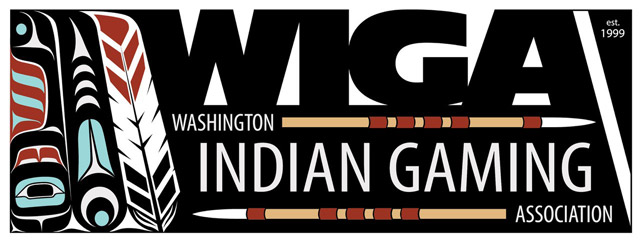Tribal governments across Washington are investing in our people, infrastructure and communities. It’s not just tribal communities that benefit. As one of the state’s top employers, tribes are providing great jobs and business opportunities.
1 | TRIBAL GAMING FUNDS ESSENTIAL SERVICES
- Tribal gaming revenues fund basic services such as education, natural resources, human services and infrastructure investments.
- Tribes buy goods and services from their neighbors, employ non-Indians, and as the 7th largest employer in the state they produce an estimated $722 million in state and local government revenue. In 2017, the Indian economy in Washington state yielded more than $5.3 billion in gross state product. Allowing sports betting at tribal facilities helps ensure their continued viability and benefits to neighboring communities and the state.
- Washington’s tribal governments are also making investments and charitable contributions that support neighboring local governments and charitable organizations. Thousands of organizations – school districts, first responder agencies, food banks, and performing arts organizations, to name a few – have received millions from tribes.
2 | TRIBAL GAMING IN WASHINGTON IS SAFE
- Tribal gaming is one of the most regulated industries in the country, with three levels of oversight. Regulating sports wagering under tribal-state compacts would use this proven structure to ensure fairness and safety.
- As with other forms of gambling, there are risks involving fair play, problem gambling and financial sustainability. Tribes take these risks very seriously and are committed to preventing and addressing problems.
- Tribes have contributed more than $19 million to support responsible gambling education, prevention, treatment and wellness. Tribes are also tackling problem gambling through prevention programs, awareness-building campaigns, casino self-exclusions and ban requests. Recently, tribes partnered to develop a statewide digital media campaign to raise awareness of problem gambling resources.
3 | TRIBAL GAMING IS GOOD FOR WASHINGTON
- Tax monies and revenue generated from tribal casinos stay in Washington and benefit both tribal and non-tribal communities. It’s essential to their wellbeing.
- Tribes provide living wage jobs, opportunities for advancement and fulfilling careers that benefit individuals, families and communities.
- Unlike out-of-state commercial gaming companies, tribes invest gaming revenues in Washington, helping some of the most economically disadvantaged people and areas in the state.
4 | GAMING NEEDS TO BE LIMITED AND SAFE
- For several years, tribes, legislators from both parties and state officials considered how to bring sports betting to Washington in a safe and controlled manner. A bi-partisan bill was signed in 2020 that authorized limited sports betting at tribal facilities, subject to the terms of Tribal-state compacts. Several Tribes are in negotiation to provide limited sports betting at their facilities.
- Out-of-state commercial gaming operators continue to press legislators and the public to dramatically expand the gambling footprint in Washington. People in Washington are staunchly against ‘gambling everywhere’ proposals. They tolerate current levels of gambling because it is limited primarily to tribal facilities and effectively regulated.
